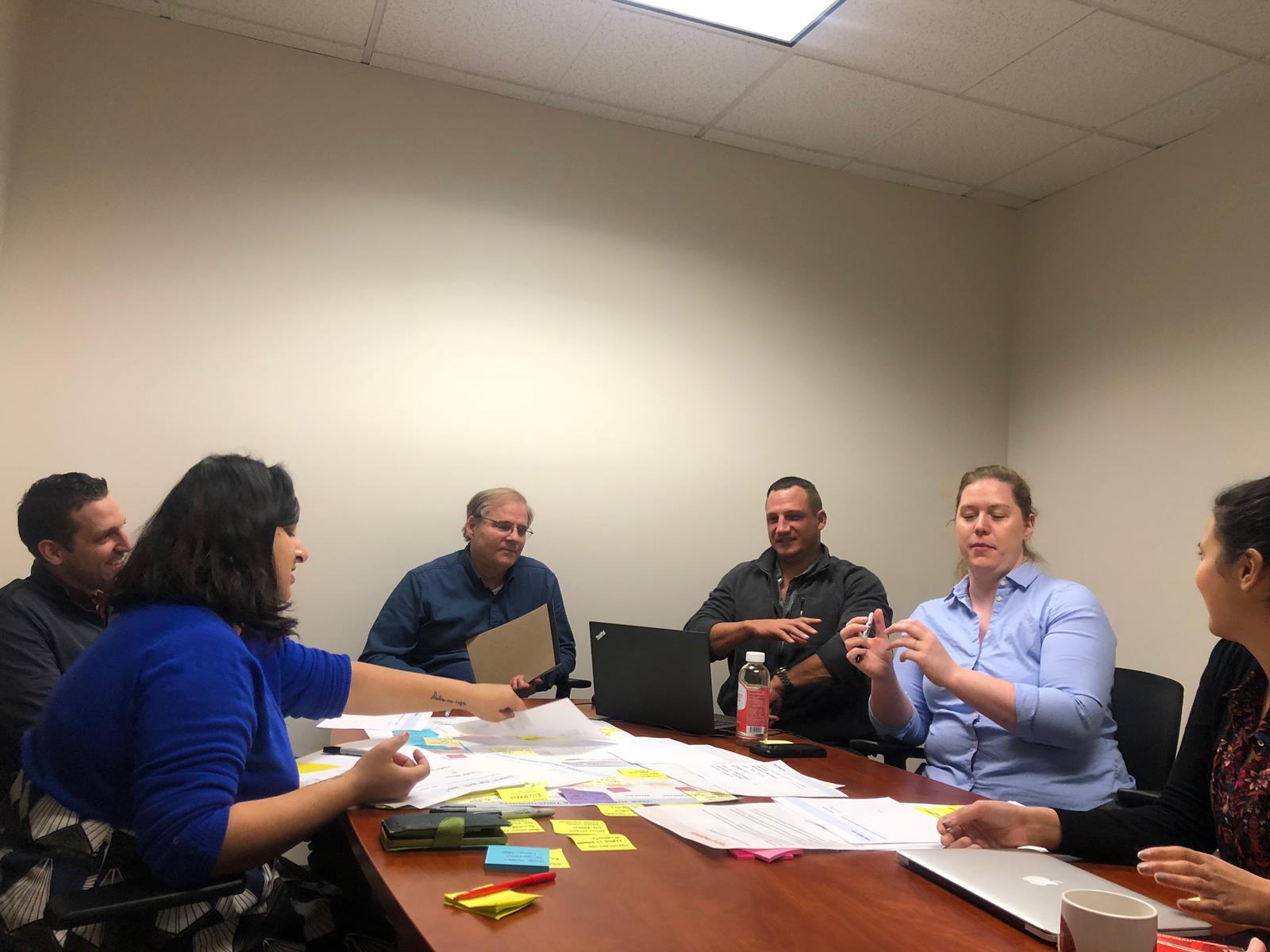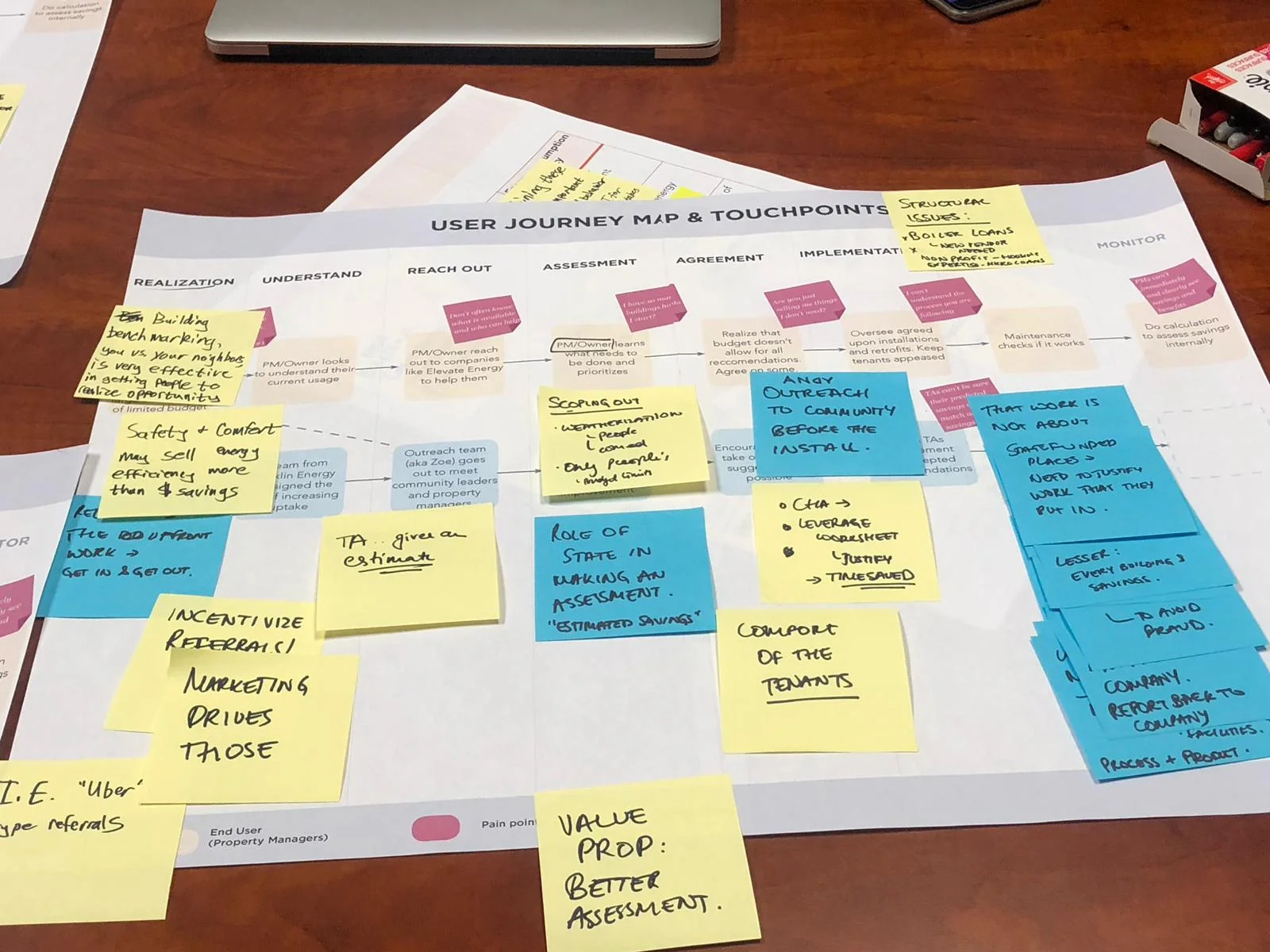FRANKLIN ENERGY
project
Historically, the adoption of natural gas energy efficiency (EE) measures in low income communities has lagged behind the corresponding adoption rates in middle and high income communities. The current understanding of the barriers to EE measure adoption in low income communities is incomplete. A multi-phased project was envisioned to address this issue, kicking off in Spring 2018 where IIT graduate students conducted an exploratory (Phase 1) study and were tasked with developing an evidence-based pilot program that would aid in reducing natural gas consumption in the underserved population of Chicago’s low income neighborhoods. Three teams of students focused their research on three distinct sectors or subsectors within these communities; schools, small businesses and multifamily housing units. Phase I culminated with each team preparing a report and making a presentation, including of a prototype solution to address the identified barriers to greater utilization of energy saving technologies. The opportunities identified by the Multifamily Dwellings team, were selected for further development (Phase 2).
Phase 2 began in October 2018 with a multidisciplinary team of students from the Stuart School of Business, Design Institute, and School of Applied Technology.
my role
Performing a market assessment to determine what products, if any, currently exist that are similar to Franklin products.
Conducting a technical evaluation of existing products discovered in market assessment.
Interviewing low income property managers and owners, and trade allies to establish requirements and current gaps in functionality and incentives for adoption.
Performing an opportunity analysis to discover options for development.
Developing and assessing the business case based on analogous models and primary research to move to program implementation.
Developing a strategic plan for multifamily building manager engagement.
Discovering new methods of outreach and relationship development.
Conducting a co-design workshop with our client
Client and team fill out empty user journey map and touch points based on research
Design Methods
Co-design workshop with client
Primary research in the form of interviews with low income property managers, trade allies, and the internal Franklin Energy team.
Analogous industry analysis
Development of user journey map and touch points
Creation of service blueprint detailing a plan to roll out proposed model
insights
Understand different triggers:
Triggers can be high utility bill trends, hiring for Energy Analyst role, building construction. “Utility bills can tear your budget apart.” - Supervisor of Property operations, Paul G Center.
Design for different values:
“While utility companies think of EE as reducing energy, for people it is about cost saving, safety or making it fun. While for developers/owners it might be about retention. Translating this is very important.” - Project manager, 7th Wave
Promote open communication:
“What works well is keeping lines of communication very open with PM and to the extent needed with tenants. Everyone should know what is going on, and there is a clear ownership of project aspects.”
Make energy efficiency more specific:
“Rather than saying it saves so much energy, we would need a more integrated approach, that is designed for the specific building versus average EE across buildings”
outcome
Working with the four design principles identified in the multifamily final report in Phase 1, the team developed a work plan that allows bifurcation of the effort, with and without a software option, as an outcome.
Over 9 weeks we conducted secondary research to understand the multifamily low income landscape and ladder up the focus area for further research. Primary research was done to understand the needs and context of important stakeholders and players in this ecosystem. As the team began to synthesize findings they conducted a working session with Franklin Energy to understand areas of opportunity and key capabilities of the company.
Our proposed product, Ally 2.0, is a conceptual platform that connects Energy Advisors, Property Managers and Trade Allies across the a property owner’s journey to improve their relationship with Franklin Energy. We also provided Franklin Energy with a full service blueprint that identifies user touch points and the actions which need to occur for successful implementation.




